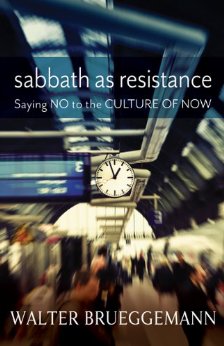Author: Walker Wright
-
The Expanded Canon: A Review
Several months ago, my wife Lissette gave a talk in sacrament meeting on the topic of modern prophets and continuing revelation. She wanted to provide something different, something the congregation could really chew on (no “theological Twinkies“). She ended up discussing how modern-day prophets model the process of revelation for us. Drawing on Elder Bednar’s analogy…
-
“Saints, Slaves, & Blacks”: A Review
This past May, I went to see Jana Riess present her recent research on Mormon Millennials at the Miller Eccles Study Group here in Texas. One of the most interesting (and disturbing) bits of information was her finding regarding Mormons’ opinions about the priesthood/temple ban. As she summarizes online, The 2016 NMS asked whether respondents…
-
Review: William V. Smith’s ‘Textual Studies of the Doctrine & Covenants’
In October 2007, I returned home to Texas from my mission in Nevada. In April of the following year, the raid on the YFZ Ranch near Eldorado, TX, occurred. I didn’t think much about it at the time because, you know, they weren’t real Mormons (as many LDS are wont to say). However, a good…
-
“Neither Shall There Be Any More Pain”: Trials and Their Purpose
This is a talk I gave in sacrament meeting on March 12, 2017. The topic was “Trials and Their Purpose.” I appreciate the thoughts and words of [the previous speakers]. I hope that you all can find some solace in our various messages, even if the answers are a bit incomplete. The purpose of trials—or…
-
‘A Reason For Faith’: A Review
During the lesson in Elders Quorum this past Sunday, we discussed ways to enhance our study of the scriptures. As usual, I raised my hand and recommended that we study the scriptures within their historical and cultural context so that our “likening” of them does not turn into “making stuff up.” I said that this should…
-
“A Supreme Act of Love”
This past Sunday, we covered chapter 6 of the Howard W. Hunter manual titled “The Atonement and Resurrection of Jesus Christ.” The lesson quotes President Hunter as saying that the Atonement “was an act of love by our Heavenly Father to permit his Only Begotten to make an atoning sacrifice. And it was a supreme…
-

The Sabbath Day: Its Meaning and Observance
This was a talk I gave a month or so ago as part of High Council Sunday. In preparation for this talk, I read through Elder Nelson’s April Conference address on the Sabbath, in which he stated, “I am intrigued by the words of Isaiah, who called the Sabbath “a delight.” Yet,” he continued, “I…
-

Data, Doctrines, & Doubts: Improving Gospel Instruction
I’m grateful for the invitation and excited to participate here at Times & Seasons. The following is a talk I gave in our recent Stake General Priesthood meeting as the newly called Stake Sunday School President. While many of the ideas below were conceived independently, I was heavily influenced by some of Ben Spackman’s writings (especially the quotes) when…
